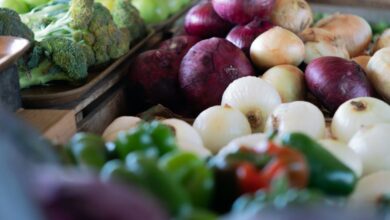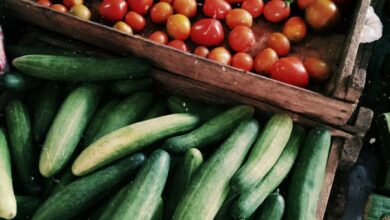Farmers Markets for Local Produce
Farmers markets have become an essential part of many communities, serving as vibrant hubs for fresh, local produce. These markets not only provide an opportunity for farmers to sell directly to consumers, but they also foster a sense of community and promote sustainability. With an increasing awareness of the importance of supporting local agriculture, farmers markets are gaining popularity across the globe.
Freshness and Flavor
One of the most compelling reasons to shop at farmers markets is the unparalleled freshness of the produce. Unlike grocery store items that may travel thousands of miles before reaching shelves, fruits and vegetables at farmers markets are often harvested just hours before the market opens. This means that the produce retains more of its nutrients, flavor, and texture. A vine-ripened tomato purchased at a farmers market will taste far superior to its supermarket counterpart, making every meal a culinary delight.
In addition to traditional fruits and vegetables, farmers markets often showcase unique and heirloom varieties that are difficult to find in conventional stores. These rare produce items not only add diversity to your plate but also help preserve agricultural biodiversity. By choosing to buy from local farmers, shoppers contribute to the preservation of these unique cultivars.
Supporting Local Farmers
When you purchase produce at a farmers market, you are directly supporting local farmers and their families. This relationship strengthens the local economy and encourages sustainable farming practices. Farmers markets provide small-scale growers with the opportunity to sell their goods without the middlemen typically found in large grocery chains. This not only boosts their income but also allows them to invest in their farms and improve their practices over time.
Furthermore, many farmers at these markets practice organic or sustainable farming methods, allowing consumers to make healthier choices. By buying local, you are often choosing produce that is grown with fewer pesticides and chemicals, contributing to a healthier planet and community.
Community Connection
Farmers markets are more than just places to buy food; they are vibrant community spaces. They create a unique atmosphere where locals can gather, socialize, and learn about food. Many markets offer cooking demonstrations, workshops, and educational programs that promote healthy eating and sustainable practices. This sense of community fosters relationships between farmers and consumers, creating a network of support that benefits everyone involved.
Moreover, farmers markets often host local artisans and craftspeople, providing a platform for them to showcase their goods. This gives shoppers the chance to purchase handmade items, from artisanal cheeses to organic soaps, all in one place. As a result, these markets become a celebration of local talent and creativity, enriching the community’s cultural fabric.
Environmental Impact
Choosing to shop at farmers markets can significantly reduce your carbon footprint. Local produce typically requires less transportation, which means fewer emissions and less fuel consumption. Additionally, these markets often promote sustainable practices, encouraging consumers to consider the environmental impact of their food choices. By buying seasonal produce, shoppers help to lower the demand for out-of-season items that often require extensive resources to grow and transport.
Many farmers markets also incorporate eco-friendly practices, such as encouraging shoppers to bring reusable bags and providing composting options for waste. This commitment to sustainability aligns with the growing global movement toward more conscious consumption.
A Sustainable Future
As more people recognize the benefits of supporting local agriculture, farmers markets are likely to continue their rise in popularity. They represent a shift toward a more sustainable food system, where community engagement and environmental stewardship take center stage. By participating in farmers markets, shoppers are not just purchasing food; they are investing in a sustainable future for their communities.
In a world where convenience often trumps quality, farmers markets remind us of the importance of knowing where our food comes from. They provide a direct link between consumers and producers, fostering relationships rooted in trust, transparency, and shared values. By embracing the farmers market culture, individuals can savor the flavors of the season while contributing to the well-being of their local economy and environment.







